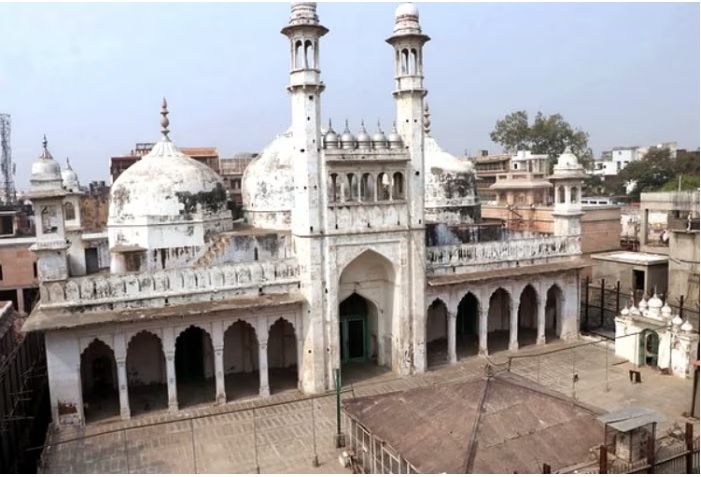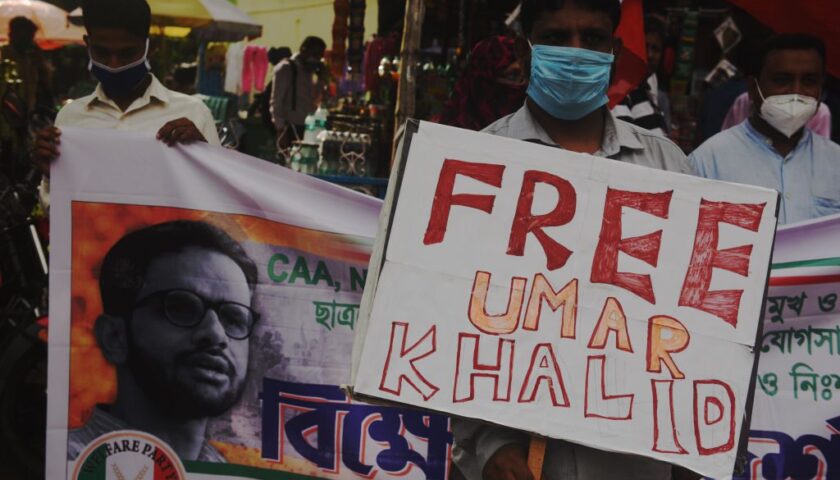The Allahabad high court on Thursday ruled that the ASI survey on the Gyanvapi mosque complex in Varanasi will continue. The Muslim side’s plea that the survey may damage the structure has been dismissed by the high court. The survey will be done in the terms of the ASI’s affidavit, Vishnu Shankar Jain, the lawyer for the Hindu side said after the Allahabad high court’s major verdict.
The nod has come for a ‘scientific’ survey of the barricaded area barring the sealed area of the ‘wazukhana’.
“Issue of commission is permissible. Varanasi Court justified. The scientific survey is necessary in the interest of justice,” the order stated, as per LiveLaw.
“I welcome this verdict. I am confident that the truth will come out after the ASI survey and Gyanvapi issue will be resolved,” UP deputy CM Keshav Prasad Maurya said after the Allahabad high court verdict.
Muslim leader Khalid Rasheed Firangi Mahali said the Muslim side has the option to approach the Supreme Court against the Allahabad high court order.
On July 21, a Varanasi court directed the ASI to conduct a survey to determine where the mosque was actually built on the site of a temple. The survey began on July 24, but was stalled by the Supreme Court which ordered “some breathing time” to appeal a district court order.
The Gyanvapi case started after a group of women approached the court in Varanasi claiming a temple used to exist earlier. The court ordered a video survey of the complex. During the survey, a controversy arose over a structure which the Hindu side claimed to be a shivling and the mosque management committee said it was part of a fountain in the wazukhana.
No damage to be caused to the structure: Court
During the hearing, the ASI told the court that there will be no damage to the structure and in its order, the Allahabad high court emphasised that the condition has to be upheld. The court said the ASI must ensure that no damage is caused to the structure. The ASI assured the court that it has the technical capabilities to do the survey without causing structural damage or doing any excavation.
What Yogi Adityanath said on Gyanvapi earlier
“If we call it Gyanvapi mosque, there will be a problem. Whoever has eyes can see that there was a temple. What is a trishul doing inside a mosque? What is a jyotirlinga doing there? The walls are screaming that it is a temple. And a proposal should come from the Muslim society that there has been a historical mistake,” Yogi Adityanath earlier said on Gyanvapi.
Gyanvapi Mosque, also known as Gyanvapi Masjid, is a historic mosque located in the city of Varanasi, Uttar Pradesh, India. It is situated near the famous Kashi Vishwanath Temple, one of the holiest Hindu temples in the country. The mosque has a significant religious and cultural importance and has been a subject of controversy and disputes over the years.
History: The Gyanvapi Mosque was built by Mughal Emperor Aurangzeb in the 17th century. It is believed to have been constructed on the site of an ancient Hindu temple. The name “Gyanvapi” is derived from the words “gyan” (knowledge) and “vapi” (well), referring to a well inside the mosque complex that is considered sacred by both Hindus and Muslims.
Controversies and Disputes: The mosque has been at the center of disputes and controversies due to its proximity to the Kashi Vishwanath Temple. Hindu groups and activists have claimed that the mosque was built after demolishing the original Vishwanath Temple. They demand that the mosque be demolished, and a grand temple be constructed at the site.
The matter has been a subject of legal battles for decades, and there have been occasional communal tensions over the issue. Several court cases have been filed seeking the removal of the mosque or its relocation to another site.
Allahabad High Court’s ASI Survey: In a recent development, the Allahabad High Court allowed the Archaeological Survey of India (ASI) to conduct a survey of the Gyanvapi Mosque premises. The court’s decision came in response to a plea seeking to determine whether there was any evidence of the original temple’s existence beneath the mosque.
The ASI survey aims to investigate the historical and architectural aspects of the site to ascertain whether there are any remnants of a Hindu temple beneath the mosque. The survey’s findings are expected to have significant implications for the ongoing legal and communal debates surrounding the site.
Significance: The Gyanvapi Mosque and the Kashi Vishwanath Temple are symbols of India’s rich religious and cultural heritage. The area is visited by millions of devotees and tourists each year. The coexistence of the mosque and the temple in such close proximity has been a testament to the country’s tradition of religious tolerance and diversity.
However, the disputes and legal battles have also brought attention to the complexities and sensitivities surrounding religious sites in India. The ASI survey’s outcome is likely to impact the public discourse and the future of the site, making it a closely watched matter by people across the nation.




